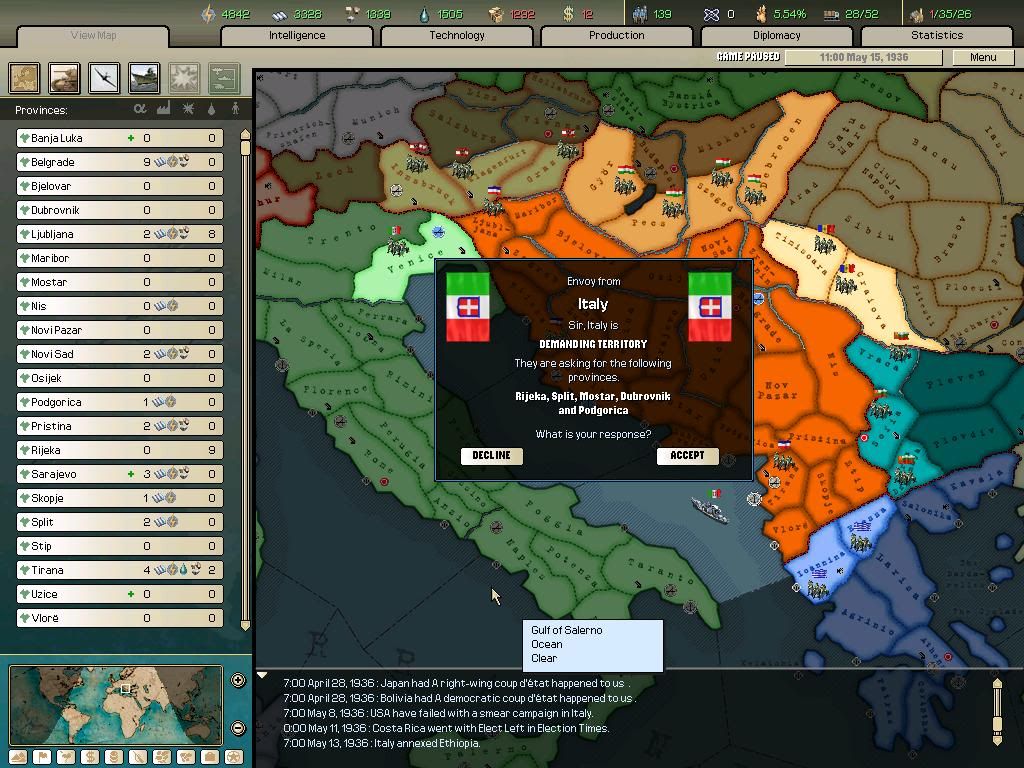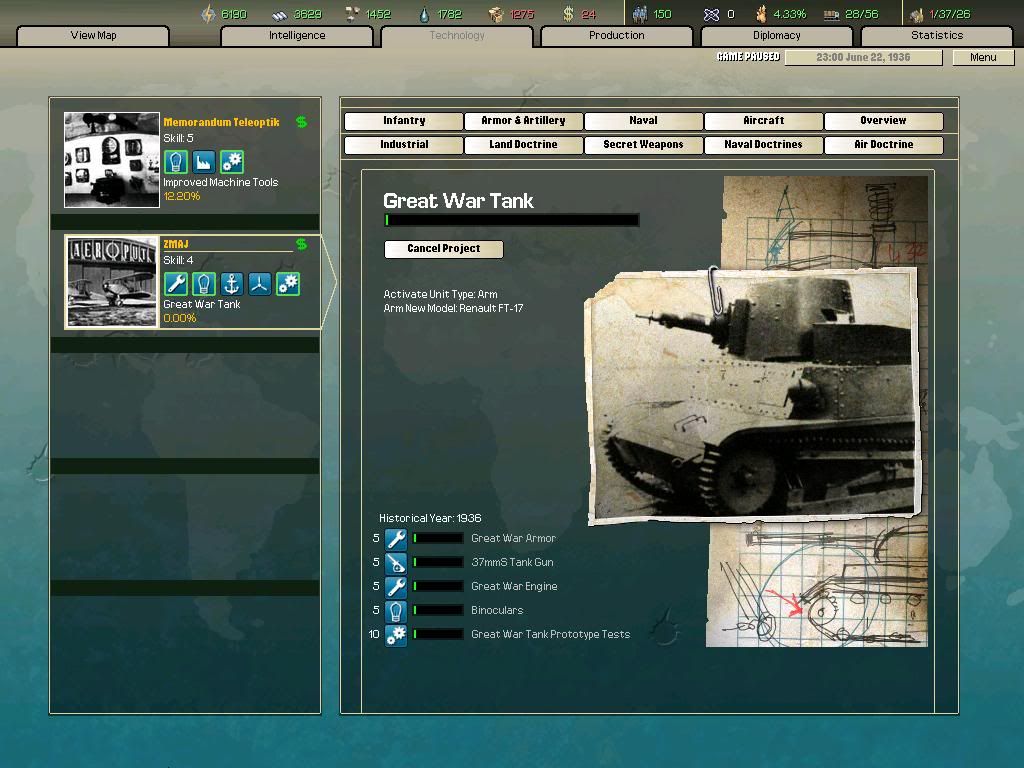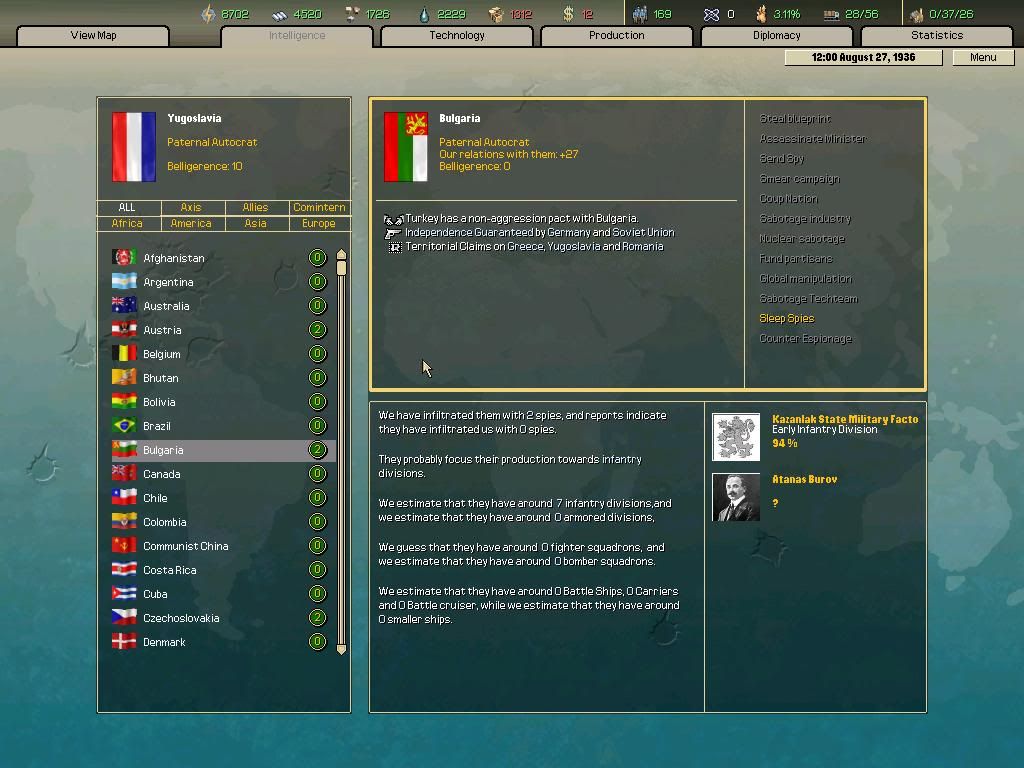Југославија, Југославија!

Chapter One - Albania
Chapter Two - Italy Expects, Yugoslavia Dissapoints
Chapter Three - Sucsess
Chapter Four - The Yugoslav-Hungarian War Begins

Chapter One - Albania
Chapter Two - Italy Expects, Yugoslavia Dissapoints
Chapter Three - Sucsess
Chapter Four - The Yugoslav-Hungarian War Begins
In 1936, the world stood on tenterhooks. The Treaty of Versailles was in tatters-German re-armament had turned the fates of the country around dramatically, from a weak, economically fractures nation into one of the great powers of the world again. While her neighbours trembled, further away from the centre of Europe things were changing. In Yugoslavia, a nation forged by the Treaty of Versailles, His Royal Highness Pavle Karadjordjevic sat at his bedside table, having earlier that day had a meeting with his council of advisors.

The Prince himself, in military dress.
Everybody could see war on the way-another great war was coming soon. Bordered by Hungary, Romania and Greece, Yugoslavs could have slept soundly. Even with the diminutive Albania so close, there was no reason to worry; there were more men in the Yugoslav army than in the entirety of Albania. No, it was another matter disturbing the sleep of the ruler tonight-the Italians. They had a strong army, a foolish leader, and a sense of militant pride that might very well see Yugoslavia come into her sights. Most of the Italian armies active were active in Ethiopia, far away from Yugoslavia, but they would soon be finished and looking for another victory.
Yugoslavia would have to prepare, and Pavle had heard the Minister of Technology beam with pride at the complex plans drawn up by Zaztava Arsenal to reform the infantry in line with modern standards. Machines were being outfitted by Memorandum to be more efficient, and in all Pavle could say that he was happy with the progress in science being made in his nation. Not all of the meeting was taken up with chattering and the salutation of science, however. Recognising the aggressive attitudes of the Italians, and their designs on Albania, plans were drawn up for a pre-emptive attack on Albania, to protect it from the Italians. As soon as the III.Army were ready, the move would be made and upon explanation to Emperor Zog, Pavle was sure that he would see sense in the plan.
As part of the ongoing changes in Yugoslavia, to celebrate, a new division of infantry were commissioned, as part of an examination of Yugoslavian industrial power. It would not be the only investigation of Yugoslavian power in those times.
Private Christian Imbrahimovic, Albania, 8th January
Left, right, left, right, the mental drums beat in Christian's head. He was marching, with 15,000 other Yugoslavs-specifically, Herzegovina, down the city of Vlore. The day before, at exactly zero hours and zero minutes, the act of annexation had been signed by Emperor Zog, and now Albania was part of Yugoslavia, recognised by all the be part of the greatest nation on earth. For the young private, it was a very happy day. He was a simple young man, no more than seventeen years of age, and he took great pride in his shining uniform and his clean boots.
It was an hour of marching up and down massive streets to waving Albanian and Yugoslav flags before the soldiers fired the final salute and were allowed to go about their business. Christian's platoon were ordered to headquarters, where their sergeant, a man only two years Christian's senior, was being spoken to by an officer hidden behind medals and a trenchcoat. “Sergeant Princillip, I personally asked that the first section to arrive in the capital would be brought to me. That is why you were here. The lieutenant here reports that you were in a civilian truck when you arrived, and that you managed to stuff all twenty men into your transport. Who came up with the idea?”
“Sir, it was Private Imbrahimovic, sir.” Princillip's response was quick and simple, looking through the tall man as he spoke. The Lieutenant-General did not look at the private, his round green helmet burnished like fine brass.
“Thank you. Lieutenant, see that this man becomes a sergeant, and give him-” Christian spoke, down the line away from the officer, against every fibre in his body screaming at him to just listen.
“Permission to speak, sir.” The officer raised an eyebrow.
“Granted. What is it, Private?”
“Sir, while I would be happy to accept any duties or commissions you grant me, I have one request.”
“Carry on,” said the officer.
“I wish to remain with my platoon, sir.” The officer sunk into thought, surprised by both the private's loyalty and his...stupidity. Anyone who refused their own platoon must be a moron, he thought, before replying.
“Very well. Lieutenant, make this man a sergeant. Princillip is to be raised to Sergeant-Major, and retain command of his platoon.” The lieutenant behind him spat out a 'yessir' before the platoon were dismissed. Amidst cheers and the night's wild celebrations, a new addition was to be found; the three echelons on the shoulder of Christian's new trenchcoat, the sign of a sergeant.
Sergeant Christian Imbrahimovic, Northern Yugoslavia, 25th March
Christian's men had been reassigned to the flagship of the army, as it were, the new Guards division. Stationed in the north of Yugoslavia, on the borders of Austria and Italy. Beyond that Nazi Germany stood, out of the mind of Christian at the present. It was a little after midday, and in a moment of quiet he was writing a letter to his mother in Livna, about his promotion and how he was in the finest division in the world, and how he hoped she was proud of him. He asked of his four little brothers, and everything else.

To his knowledge, all was well. Yugoslavia was building a stronger army, factories were being built not just in the cities but in the poor places, where the money they would bring in could do the most good. Nothing was wrong at all, and the future was a bright place. His birthday was next month, and there would be many more in a greater Yugoslavia for Christian, so said the men in government.
They could not have possibly been more wrong.
Last edited:













